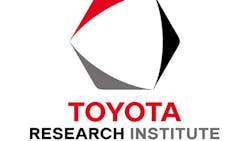Toyota Adds Third US Research Facility for Autonomous Cars in Michigan
Toyota Motor Corp. (IW 1000/8) said it will collaborate with the University of Michigan on a research base near the school’s Ann Arbor campus to focus on autonomous vehicles, the third center under a $1 billion investment by the automaker.
Gill Pratt, CEO of the Toyota Research Institute (TRI), announced the Michigan expansion in a speech on April 7 at Nvidia Corp.’s annual technology conference in San Jose, Calif.
“Beyond the extraordinary work that U-M is doing broadly in advancing automotive safety research -- and in autonomous driving, in particular -- Toyota has deep roots in the Ann Arbor community,” Pratt said.
Toyota hired Pratt, who was the U.S. military’s top robotics engineer, in September. The Toyota Research Institute also is creating centers in Palo Alto, Cali., and Cambridge, Mass. Although the focus of each of the three strategically located facilities will be broad, each will feature a different core discipline. The Michigan center will focus primarily on fully autonomous (chauffeured) driving. The California center will work on what may be termed “guardian angel” driving, where the driver is always engaged but the vehicle assists as needed. The center in Cambridge will dedicate a large portion of its work to simulation and deep learning.
The Ann Arbor hub is scheduled to open in June, with an eventual staff of 50 people, Toyota said. About 15 employees from the nearby Toyota Technical Centers, which have been doing autonomous-car research for more than a decade, will transfer to the new facility when it opens, the company said.
"Sensor hardware and algorithms are improving at a tremendous pace," said U-M Professor Edwin Olson. “TRI researchers will push the frontier even further, with the goal of providing safer vehicles and more helpful robots in the home," said U-M Professor Edwin Olson.
The Toyota Research Institute is an enterprise designed to bridge the gap between fundamental research and product development and has four initial mandates.
- First, it will strive to enhance the safety of automobiles with the ultimate goal of creating a car that is incapable of causing a crash, regardless of the skill or condition of the driver.
- Second, it will work to increase access to cars to those who otherwise cannot drive, including seniors and those with special needs.
- Third, it will help translate Toyota’s expertise in creating products for outdoor mobility into products for indoor mobility; moving people and goods across the country, across town, or across the room.
- Finally, TRI will accelerate scientific discovery by applying techniques from artificial intelligence and machine learning, particularly in the area of materials science. Using computation and machine learning, it hopes to accelerate scientific discovery in this area, lowering costs and improving performance of future mobility systems.
- Beyond the projects it will engage in with the three universities (more than 30 are already underway at Stanford and MIT). The company is pursuing collaboration with other automakers, IT companies, suppliers, research labs and universities to jointly develop autonomous technologies.
- Third, it will help translate Toyota’s expertise in creating products for outdoor mobility into products for indoor mobility; moving people and goods across the country, across town, or across the room.
- Second, it will work to increase access to cars to those who otherwise cannot drive, including seniors and those with special needs.
About the Author
IW Staff
Find contact information for the IndustryWeek staff: Contact IndustryWeek
